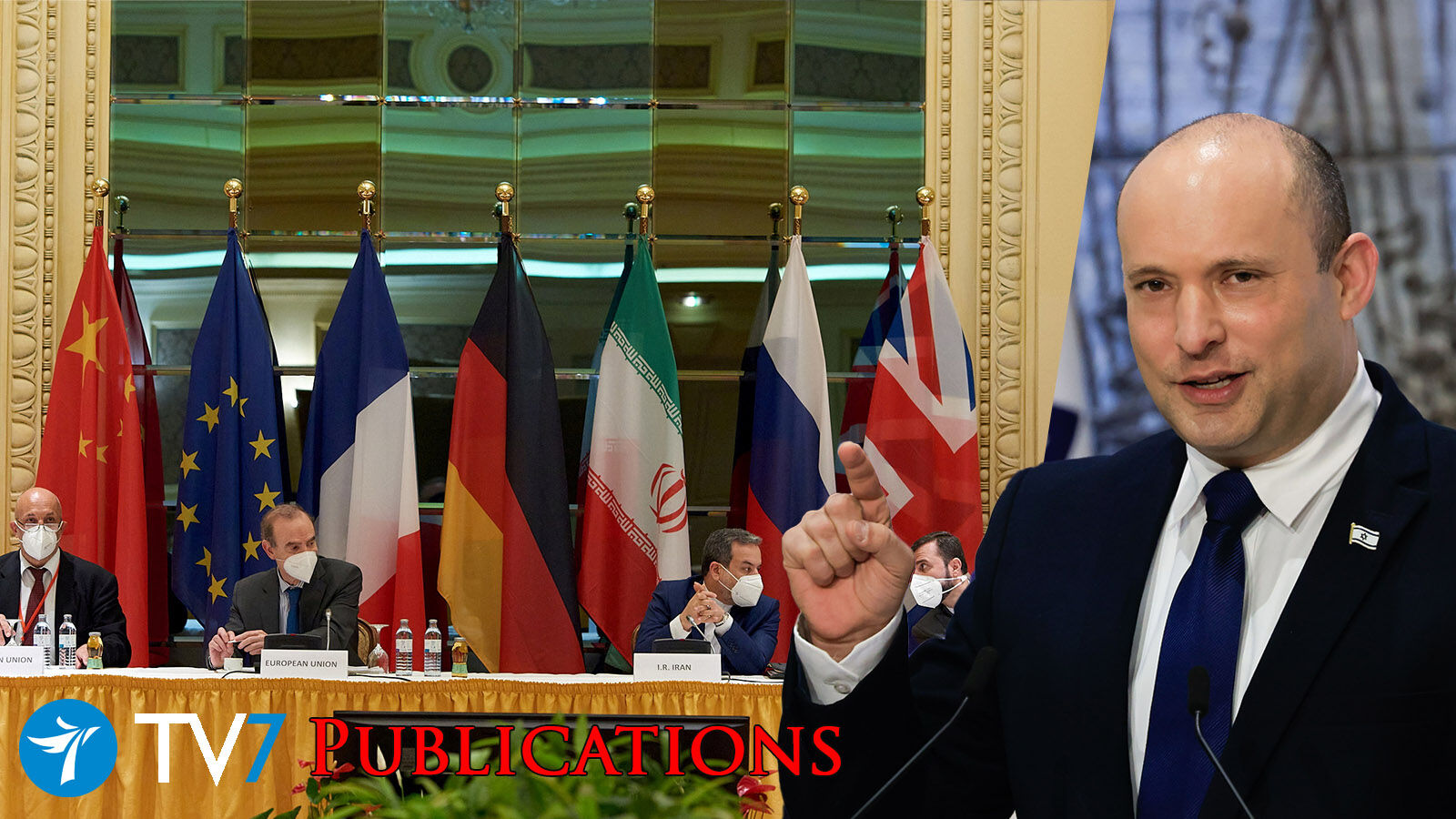By President of the Jerusalem Institute for Strategy and Security, and a specialist in strategy and Israeli national security.
Even if Israel’s ability to influence US decision-making is limited, it is a serious mistake to downplay Israel’s opposition to the dangerous nuclear accord.
Unlike previous Israeli governments which strongly and publicly opposed the nuclear agreement signed by the Obama administration in 2015, the Bennett-Lapid government seems to be shying away from open opposition to US return to the nuclear agreement. In his speech last week to the UN General Assembly, Israeli Prime Minister Naftali Bennett did not mention the nuclear deal at all and thus did not express his objection to US return to the agreement.
According to media reports, Bennett has pledged to US President Joe Biden not to conduct a public campaign against a return to the nuclear deal.1 Israeli Defense Minister Benny Gantz has gone further, telling the Foreign Policy magazine (September 14, 2021) that “Israel can live with a new nuclear agreement.”2 At the same time, the government has rescinded former Prime Minister Benjamin Netanyahu’s directive to refrain from discussing with the Biden administration the details of negotiations to reinstate the nuclear deal.3
Apparently, the current Israeli government wants to avoid tensions with the Biden administration. Perhaps it views the nuclear agreement as less dangerous, and/or it considers coordination with the US regarding Iran’s nuclear program more important. Perhaps it thinks that, anyway, negotiations for renewal of the JCPOA will fail.
Israel is making a serious mistake. Cessation of Israeli opposition to US return to the nuclear agreement carries significant risks that could undermine Israel’s struggle against the Iranian nuclear bomb project.
A return to the original weak agreement would allow Iran to come close to assembling a nuclear bomb. The agreement does not prohibit research and development on centrifuges intended for uranium enrichment, and the inspection regimes are hardly effective. Above all, many restrictions on Iran’s nuclear program will sunset (expire) in 2025. Moreover, the very negotiations over a framework for return to the agreement is dangerous. The Iranians are just bidding for time, while their centrifuges spin away.
Second, by implicitly agreeing to US return to the nuclear deal, Israel largely loses the ability to demand realization of the American promise to negotiate a separate, “better and longer” agreement with Iran, which would supposedly fix the flaws in the 2015 agreement. With this Israeli concession, such a “better and longer” deal seems even further unlikely, and this includes placing limits Iran’s ballistic missile program (the delivery means for nuclear weapons), and curbing Iranian aggression (funding and supporting terrorism) across the Middle East.
Third, Israel’s past, open opposition to the agreement lent legitimacy to the possibility of unilateral military action against Iran’s nuclear program. It is more difficult to justify Israeli military activity when Israel intimates that it can live with the agreement.
Opposing the agreement also carries strategic significance, by signaling to the world Israel’s willingness to act without coordination with the US, if necessary. This is an important element in Israel’s national security doctrine; that Israel defends itself, by itself.
The significance of the Israeli government’s promise to the Biden administration for “zero surprises” is not entirely clear, but it would appear to contradict the above pillar of Israel’s national security doctrine. Israel’s apparent willingness to align with the US on such an existential issue suggests Israeli strategic weakness.
Fourth, the change in Israel’s position jeopardizes Israel’s diplomatic achievements in the region. Israel’s vociferous opposition to the nuclear accord (including Netanyahu’s landmark speech to the US Congress in 2015) earned Israel great support in Arab capitals. The Abraham Accords are largely a result of Israel’s stubborn stance against the Obama administration on this matter.
Fifth, the apparent Israeli policy change fosters the fantasy that if Iran produces a nuclear bomb, a stable nuclear balance of terror can be reached in the Middle East. This is a dangerously false illusion.
Mutual nuclear deterrence would not be obtained between Israel and Iran, for many reasons: short distances between the two countries reduces warning time; difficulties exist in establishing second strike capabilities; little communication between the two sides; and Iran’s willingness to bear many losses in striking at Israel.
Sixth, the change in Israel’s position encourages nuclear proliferation in the Middle East, which is a strategic nightmare for Israel. Several states in the Middle East counted on Israel’s opposition to slow down proliferation.
Seventh, Washington probably was ready to compensate Israel for not publicly opposing US return to the agreement. Jerusalem missed the opportunity to negotiate significant strategic compensation by bowing so swiftly to American wishes.
Finally, by renouncing Israeli opposition to the nuclear agreement, Iran’s position in the region is strengthened. This will encourage radical Islamist forces, especially against the background of America’s humiliating flight from Afghanistan.
The bottom line is that by forgoing Israeli opposition to US return to the nuclear agreement – even if only as a matter of appearance, recognizing that Israel cannot truly influence US decision-making on this issue – is detrimental to Israel’s security.
But it is not too late to return to a policy that defiantly objects to US return to the nuclear deal.
[1] Barak Ravid, “Bennett assured Biden: I will not campaign publicly against a return to the Iran nuclear deal”, Walla News, August 28, 2021. https://news.walla.co.il/item/3456920
[2] Black Zilber, “Israel Can Live With a New Iran Nuclear Deal, Defense Minister Says”, Foreign Policy, September 14, 2021. https://foreignpolicy.com/2021/09/14/israel-iran-nuclear-deal-defense-minister-gantz
[3] Barak Ravid, “In the background of the indirect negotiations between the US and Iran: Bennett convened a policy discussion on the nuclear deal”, Walla News July 4, 2021. https://news.walla.co.il/item/3445916
JISS Policy Papers are published through the generosity of the Greg Rosshandler Family.
